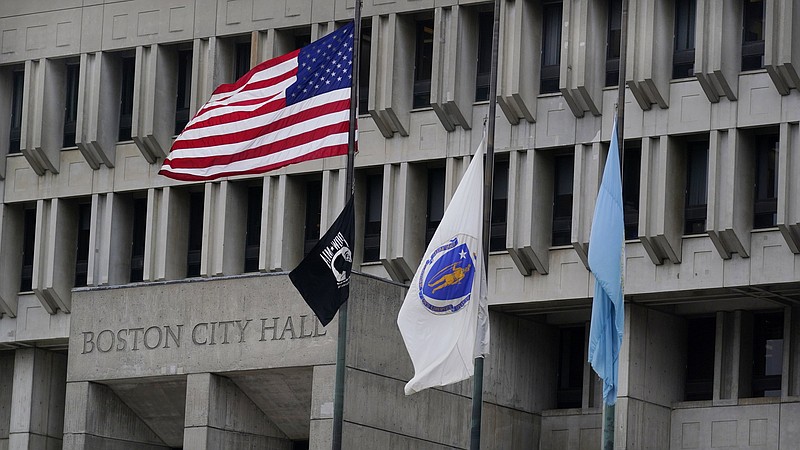WASHINGTON -- The Supreme Court ruled unanimously Monday that it was unconstitutional for the city of Boston to withhold a ceremonial city hall flag-raising from a Christian group when it had never turned down such a request from any other organization.
Justice Stephen Breyer wrote the majority opinion against his adopted hometown, rejecting the city's contention its flag-raising program was a form of government speech.
Under those circumstances, it could choose which viewpoints it would support by allowing a flag-raising on its vast plaza in front of city hall, it argued. Breyer wrote that the city's program instead essentially welcomed all except one, and that violated the First Amendment protection of free speech.
"The city's lack of meaningful involvement in the selection of flags or the crafting of their messages leads us to classify the flag raisings as private, not government, speech," Breyer wrote.
The case involves three flagpoles on a plaza outside Boston City Hall. One flies the U.S. flag, one the Massachusetts flag and most of the time the third flies the city's flag.
Occasionally, the city replaces its own flag with another, after a group applies to hoist its own banner for a brief time, usually in connection with an event.
From 2005-17, the city approved 284 consecutive requests. But then Harold Shurtleff, who leads a conservative group called Camp Constitution, applied to raise a white flag with a red cross on a blue square in the upper left corner, which he noted was a "Christian flag."
Shurtleff was turned down on the grounds it would appear that the city was endorsing one religion over another.
Lower courts said the city had that prerogative. But Shurtleff's case united conservative religious groups with the American Civil Liberties Union and the Biden administration, all of which said the city was wrong.
Breyer said Boston could change its policy to make clear the flag displayed on the plaza was speech by the city, and that might provide it more leeway in accepting some banners and rejecting others.
But in this case, the city "concedes that it denied Shurtleff 's request solely because the Christian flag he asked to raise promoted a specific religion," Breyer wrote. "Under our precedents, and in view of our government-speech holding here, that refusal discriminated based on religious viewpoint and violated the Free Speech Clause."
Breyer's opinion was joined by Chief Justice John Roberts and Justices Sonia Sotomayor, Elena Kagan, Brett Kavanaugh and Amy Coney Barrett.
The court's three most conservative members agreed Boston should lose, but disagreed with Breyer's rulings. They would tighten the test on when private speech could be construed as government speech.
The case is Shurtleff v. Boston.
